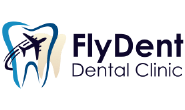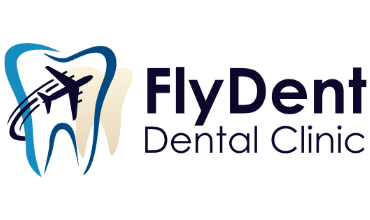For nervous patients
We are aware that visiting the dentist causes fear and discomfort for many people. Many patients tell us that deep-seated fears are the reason behind their dental problems.
At the FlyDent Clinic we do everything we can to help our patients overcome their fears and experience a pain-free treatment, because we understand the fear of dentists very well.
We have specifically designed our dental service so that we can best meet this need.
In addition to technology and specialist knowledge, the attitude towards our patients is also a very important aspect for us: Our colleagues approach you with great understanding and unusual empathy, because it is important to us not just to make your smile healthy or beautiful, but to do everything for not being afraid later in when it comes to regular check-ups after treatment.

Local anesthesia
Local anesthesia is part of the basic care at the FlyDent Clinic. In our dental clinic we work with several types of anesthetics, of which the most suitable one is used individually, depending on the patient and depending on the treatment. Pain can be prevented with local anesthesia.
Conscious sedation
For those who have greater anxiety or suffer from dental phobia, there is the option of carrying out the treatment under conscious sedation.
During a conscious sedation, an anesthesiologist gives painkillers and sedatives or sleeping pills through a venous access while monitoring heart and circulatory functions. This leads to a deep state of relaxation, which makes the treatment pleasant for the patient. The medications have an anti-anxiety effect. At the end of the treatment, the anesthesiologist administers the antidote to the sedatives used, allowing the patient to regain consciousness within minutes.
General anesthesia
There are cases in which conscious sedation is not sufficient. For patients with a pronounced dental phobia or if the scope of the dental procedure is extensive or there are other health problems that are a hindrance, such as nausea due to an increased throat reflex, the dental procedure can also be carried out under general anesthesia.
During dental treatment under general anesthesia, the anesthesiologist administers the anesthesia and monitors the patient’s vital functions during the operation. After the operation, patients go to a recovery room where they can sleep in peace while being carefully monitored and cared for.

